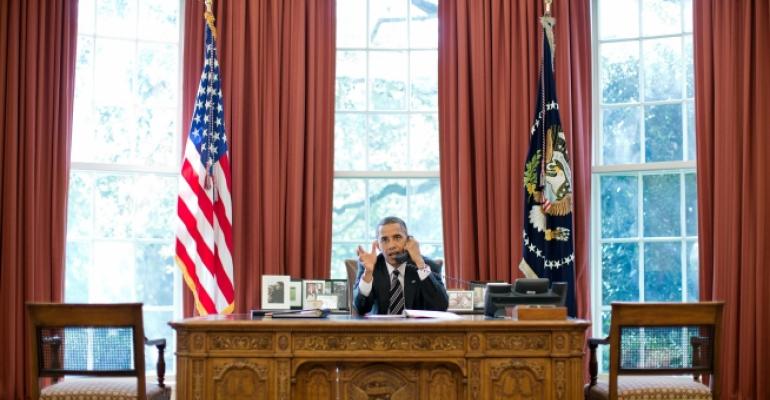The long-anticipated presidential election is over, and maybe the markets can breathe a sigh of relief, but not the securities industry. Of course, we all know Wall Street and the financial services industry was by and large not in Obama’s camp; the general idea was that he cracked the regulatory whip and was bad for business. But perhaps he wasn’t as hard on the industry as we thought.
Andrew Stoltmann, an attorney with The Stoltmann Law Offices in Chicago, believes Obama has done little for the individual investor and that his term was actually weak in terms of investor protections. The worst, he said, is yet to come.
“I think if he doesn’t have to worry about being re-elected, and he doesn’t have to worry about raising money, he doesn’t have to worry about contributions from the securities industry, I think we’ll see an emboldened Obama, who I think will come after the securities industry a lot harder,” Stoltmann told me, before the election was called.
It surprises me that Stoltmann says Obama was weak on investor protection, given the rollout of Dodd-Frank, which has required 87 studies by regulators and is ultimately going to lead to an estimated 398 rules representing a projected 29,000 pages.
Stoltmann’s view stems from the fact that Obama chose Mary Schapiro as chair of the SEC, who he says has been an advocate for the securities industry.
“[Obama’s] the guy who appointed Mary Schapiro, former head of FINRA, who was about as anti-fiduciary duty as there was,” Stoltmann said. “You took someone who was the securities industry’s greatest protector, as the head of FINRA, and made her the head of the SEC.”
“Most of us, after Obama got elected, really thought he was going to lower the hammer on the securities industry,” Stoltmann said. “Coming in when he did, basically early ’09, coming off of the greatest market crash since the Great Depression, we thought there was going to be hell to pay for the securities industry. That kind of began to not be the case as soon as he appointed Mary Schapiro. I think a lot of us became disillusioned and realized that it wasn’t going to be the change we can believe in, but rather the same status quo.”
But the status quo is about to change, Stoltmann believes, despite the fact that we’re sitting here with the same president, House and Senate.
And the industry already seems to be bracing for the change. Here’s what the Financial Services Institute had to say about Obama’s re-election: “We urge the president to carefully consider the closeness of the election results as he evaluates his regulatory policy priorities for a second term. Clients and their independent financial advisors and financial services firms need a healthier, more business friendly regulatory environment. The next 13 months are critical for our members because, come January 2013, Congress will be back in re-election mode and will not tackle anything that could put their own re-elects in jeopardy,” said Dale Brown, president and CEO.





